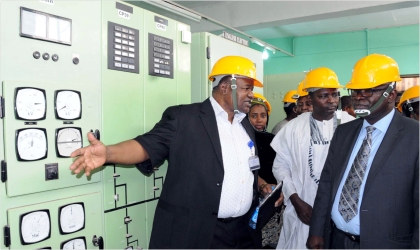Business
Grid Collapse: TCN Seeks Gencos, Discos Support

The Transmission Company of Nigeria (TCN) has blamed the power generation and distribution companies for the repeated collapse of the national electricity grid.
Consequently, the TCN demanded that the Gencos and Discos to leave up to expectations in the delivery of electricity.
Chairman, Technical and Monitoring Committee and member of the Governing Board of TCN, Nsima Ekere, disclosed this to The Tide’s source during a two-day official visit and inspection of the TCN store at Ojo and other transmission stations in Lagos by the Board.
He called on the Discos and Gencos to make adequate investments in their networks and infrastructures for Nigerians to enjoy some level of power stability.
Ekere said TCN was not responsible for poor services to electricity consumers, as the faults should be traced to the generating and utility firms.
Ekere advised both electricity distribution companies and generation companies to improve on their capacities to distribute and generate power.
“When this board came on stream, we were concerned about the issue of grid collapse. Then we set up a committee to look into the issue and we saw that it is a complex issue.
“The fault is not TCN. It is from the Gencos and Discos because sometimes when we tell them to take more power, they take less. All these impact negatively on the grid.
“That customers are able to get power does not depend on TCN capacity alone. The Gencos and Discos have to generate and distribute enough power for supply to improve”, he said.
He said TCN was in the process of installing a SCADA system, which according to him, would help create stability and eliminate grid collapse.
Other TCN stations visited by the board include Ikeja West/330/312kV transmission station, Alagbon, Lekki, and a stop at the Eko Atlantic.
The national grid has collapsed about eight times this year.
The General Manager, TCN Lagos, Chris Okonkwo, said the ongoing auditing of all equipment at the Ojo store would be concluded in the next one month, before they would be deployed to various substations for use.
He added that so far, TCN had taken delivery of 40 transformers, while about 20 have already been deployed to substations across the state.

